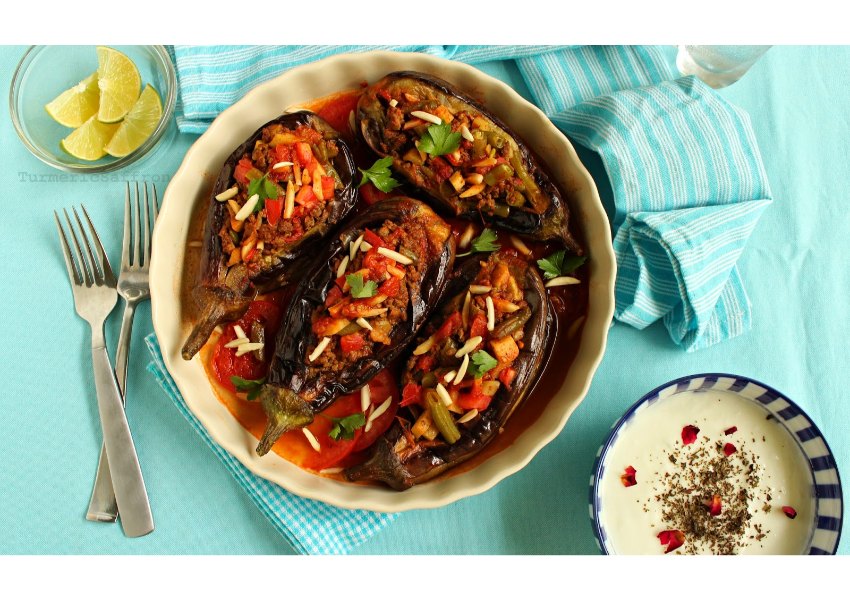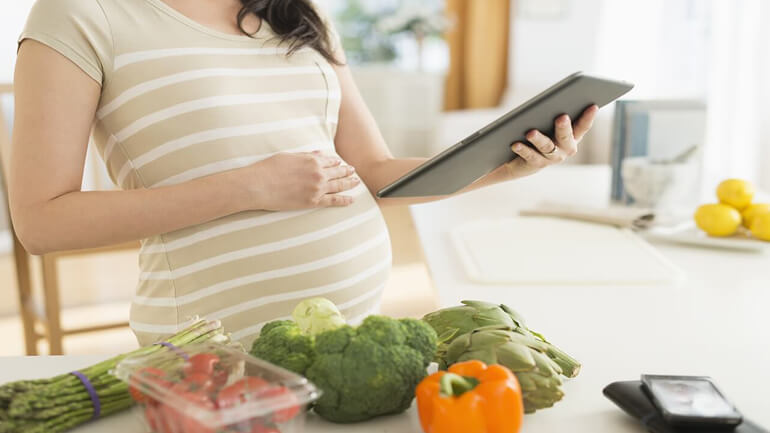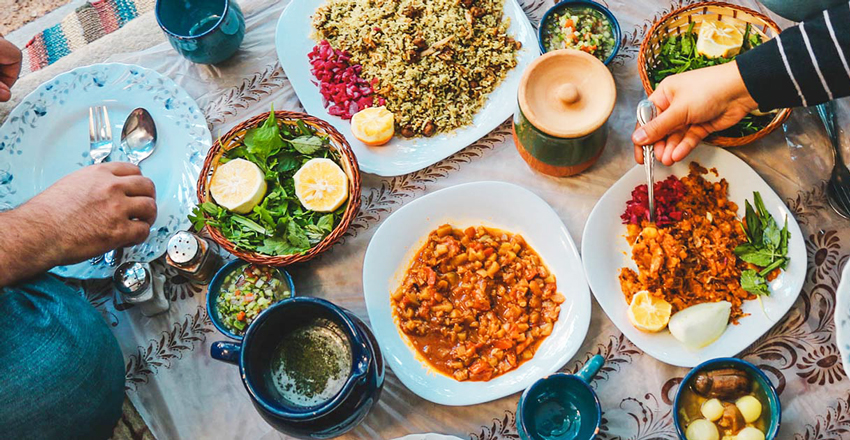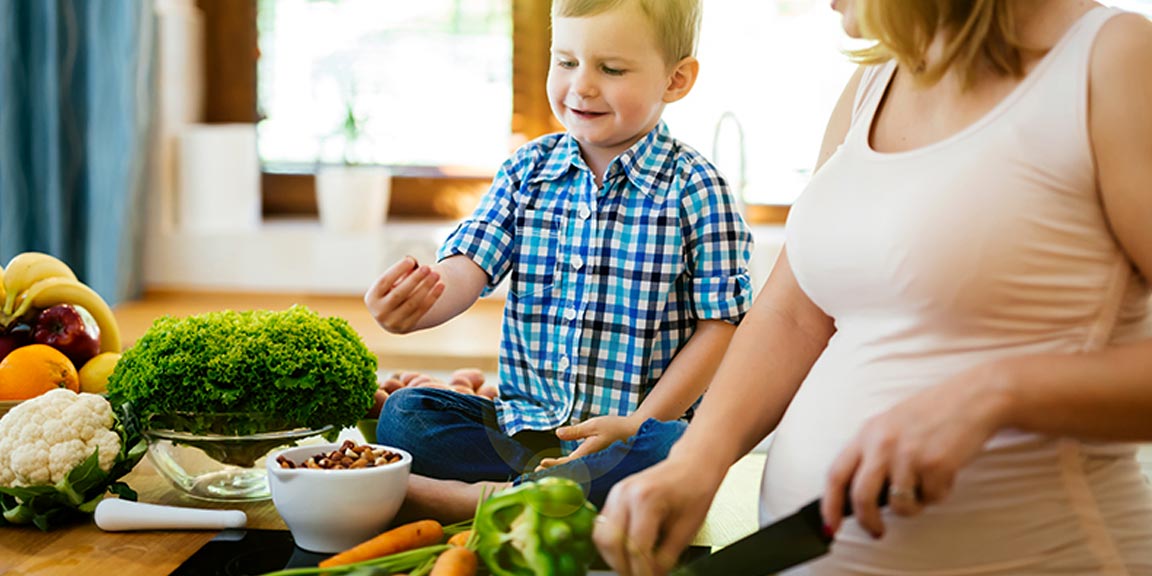How To Make Vegan Stuffed Dried Eggplant (Dolma)

Necessary ingredients for making curd and eggplant:
Medium eggplant, 3 pcs
Vegetable oil, 7 tablespoons
Garlic, 3 cloves, chopped
Salt, pepper and turmeric, as needed
Nuts, 1/3 cup plus extra for garnish
1 large white or yellow onion, chopped
Dry mint, chopped, 2 teaspoons
Soy curd or homemade vegan curd, ½ cup
To decorate: pomegranate seeds, walnuts, fresh mint (optional)
To serve: bread, fresh vegetables, pickles (optional)
How to prepare vegetable curd and eggplant (with vegan curd):
Curd and eggplant can be prepared in two ways. You can peel the eggplants, cut the eggplants in half vertically and put them in salt water to remove their bitterness, and after rinsing, fry them in some oil.
The second method is to spread the eggplants with the skin on the flame and put them on the heat or grill them on the grill. This method does not require oil and is healthier and more dietary. Then take their skin.
Beat and mash the eggplants well.
In a separate medium pan, fry the chopped onions in a few tablespoons of oil until golden.
Add chopped dry mint. Set aside a tablespoon for decoration.
Add garlic, a little salt, black pepper and turmeric and fry a little.
Now put the eggplants in the pan and fry a little with all the ingredients.
Chop the walnuts but not too finely.
Add the walnuts to the eggplant mixture and stir until mixed.
Finally, dilute the vegan curd with some water and add it to the mixture and put it on a little heat until your curd and eggplant are ready and there is no more water.
Garnish with mint, pomegranate seeds, fried onions and walnuts (optional) and serve with bread of your choice, vegetables and pickles.
You can decorate curd and eggplant in different ways depending on your taste and you can even make vegetable curd and eggplant as finger food in your parties and celebrations and make your table more beautiful and pleasant.
Is vegan pregnancy safe

As long as you eat a wide range of healthy plant foods and include key nutrients in your diet, you can get all the nutrients you and your baby need without eating animal products. Also, if you are a vegan who does not eat any animal products including meat, fish, poultry, eggs, dairy and honey, your pregnancy must be under the supervision of a nutritionist. In some cases, it is also necessary to use fortified foods or vitamins and supplements to ensure that you are getting enough of the nutrients you need. In the pre-pregnancy examinations, inform your doctor about your vegetarianism.
Protein
Eat several servings of protein-rich foods every day. Good sources of plant protein include legumes, soy products, nuts, seeds, and nut butters.
iron
You will have a blood test early in your pregnancy to check your iron levels. If iron levels are low, your doctor may also recommend taking an iron supplement.
A pregnancy supplement may provide some iron. But you also need to eat several servings of iron-rich foods every day. Good sources of iron include fortified breakfast cereals, whole-grain or fortified bread, fortified pasta, legumes, tofu and other soy products, and leafy greens such as spinach and beets.
Avoid drinking tea or coffee with your meals because these beverages contain tannins and polyphenols that make it harder for the body to absorb iron from plant foods. Instead, eat something rich in vitamin C, such as homemade orange juice, homemade ketchup, or a homemade broccoli rabe, as vitamin C helps your body absorb iron.
zinc or zinc
Try to eat several servings of zinc-rich foods every day. Many iron-rich foods, such as beans, soy products, fortified breakfast cereal, and whole grains contain zinc. Other good sources of zinc for vegetarians include nuts and seeds.
Calcium
Eat several servings of calcium-rich foods every day. Good sources of calcium include:
Almonds or sesame seeds that must be in your diet.
Almond milk or soy milk, fruit juice, and breakfast cereals or cornflakes that are fortified with calcium. If you are only a vegetarian and not a vegan, calcium-enriched milk, cheese, and yogurts can be a good choice for your daily calcium supply.
White beans, sugar cane molasses, chickpeas, calcium coagulated tofu. To know if tofu is coagulated with calcium, look for a calcium salt such as calcium chloride or calcium sulfate in the tofu ingredients.
Some green leafy vegetables include kale, turnip greens, Chinese cabbage, broccoli, and bok choy. Other sources such as spinach, beetroot and beetroot also contain calcium, but the body does not absorb calcium from these foods as well as the previous ones.
Vitamin D
This vitamin helps the body absorb calcium. Some types of vegetable milks, orange juice and cerlac are enriched with vitamin D. Many pregnancy supplements also contain vitamin D. If your supplement does not contain it, it is better to take a vitamin D supplement.
Vitamin B12
Vitamin B12 plays an important role in fetal brain development and is mainly found in animal products. Therefore, vegetarians need a reliable alternative source for their daily intake of vitamin B12. Plant-based sources of this vitamin include supplements, fortified foods and drinks such as soy milk and other plant-based milks, breakfast cereal, and edible yeast. If you do not eat foods containing vitamin B12 every day and your pregnancy supplement does not contain it, you may need to take a separate supplement to get this vitamin with the approval of your doctor.
Iodine
Iodine is also important for fetal brain development. Iodized salt and dried seaweed are good plant sources of iodine. If you don't eat a lot of these substances, check your pregnancy supplement to make sure it contains iodine.
DHA
DHA is an omega-3 fatty acid that promotes brain and eye development in the fetus. This substance is found in fish, fish oil and seaweed. Since it can be difficult to get DHA from sources other than fish, it's best to take an omega-3 supplement derived from seaweed and suitable for vegetarians.
Remember to always talk to your doctor, midwife or nutritionist before taking any supplements during pregnancy. In addition to eating a variety of fresh, frozen or canned fruits and vegetables or whole grain products, make sure you eat foods or supplements that provide the above nutrients that are important for a healthy pregnancy.
Does Vegan Collagen Work Get the Facts+ Natural Alternatives

Collagen is one of the most abundant proteins in the body, which plays a key role throughout the body, and is also one of the few proteins found in all body tissues. This protein plays a special and key role in muscle tissue, vein, tendon, bone, digestive system and most importantly in skin texture. Today, the role of this special protein in the skin healing process is very special.
Collagen, with its amazing structure and flexibility, is the reason for the strength and elasticity of the skin, in fact, it is this protein and its continuous synthesis and replacement that keeps the skin young. With increasing age and the beginning of the aging process, the synthesis of this protein decreases, and this factor causes the skin to loosen and create wrinkles on its surface.
But today, doctors and researchers, by discovering the complex relationships and reactions that are effective in this process, have been able to provide many ways to stimulate skin collagen production. Among these ways, we can mention hyaluronic acid injection, mesotherapy, microneedling and PRP, etc. Of course, all these methods are considered as medical methods and interventions. But it is interesting to know that there are simpler and less expensive home solutions that by using these solutions continuously and continuously, you can greatly help your skin's collagen production.
Materials containing collagen
Before presenting effective methods for increasing collagen production, we first need to know what substances contain collagen or stimulate collagen production in our skin. In other words, it is necessary to know what substances are effective in rejuvenating our skin.
Citrus
These foods are rich in vitamin C. With its special properties, this vitamin has a significant effect on stimulating collagen production in the body. You can simply help collagen production and rejuvenate your skin by adding the right amount of citrus fruits to your diet and providing your body with the vitamin C it needs. Among the best citrus fruits to help collagen formation, we can mention lemons, oranges, sweet lemons, tangerines, etc.
the vegetables
Regular and adequate use of vegetables not only provides the nutrients your body needs and minimizes the possibility of many diseases, but also by having a large amount of chlorophyll in its structure, it miraculously stimulates the collagen production of your skin. will be. In addition, vegetables with their antioxidant properties prevent many harmful reactions in your body and help your skin to be more healthy.
egg
This amazing substance rich in protein has very special properties for your body. Using enough eggs in your daily diet will initially meet the body's need for most proteins. In fact, it is the egg white that is rich in protein and nutrients. But the egg yolk contains a significant amount of collagen and will have an amazing effect on your skin's collagen production.
Be careful not to overdo it with eggs. Although the consumption of that amount has a significant effect on meeting the needs of the body and the health of your body and skin, excessive consumption of eggs will cause problems and liver diseases.
garlic
You must also be familiar with the unique and amazing properties of garlic. Along with all its countless properties in the field of helping digestion and digestive absorption, disinfecting the body and solving mood problems, and thousands of other properties, garlic has an amazing property in stimulating collagen production in the body. And so does your skin. Garlic has a lot of sulfur and due to the presence of this amazing mineral, it has the ability to detoxify and stimulate collagen production. Including garlic in your diet will be of special help to your body and skin health in the long run.
Red summer clothes
Summer vegetables such as tomatoes, red peppers, carrots, etc., have very special antioxidant properties, and in addition to protecting the body against free radicals and harmful reactions, they are a rich source of collagen and stimulate collagen production. Different tissues of the body and skin are irritated. Continuous and continuous use of these types of herbs and including them in the daily diet, in addition to meeting the mineral needs of the body, will also help in rejuvenating your skin.
gelatin
Gelatin itself is a direct and tangible presentation of collagen and its function in the body. Today, there are different types of ready-made gelatin available in the market and you can prepare it yourself. But using sheep and cow pens and extracting natural gelatin from them is a better method. By boiling this type of food, you can prepare gelatin at home. Using homemade gelatin is much stronger and more effective than gelatin available in the market.
Homemade collagen is a rich source of pure collagen and in addition to the unique properties it has for the health of the body, in the stages of skin and bone collagenization, it will cause an exemplary increase in collagen in the body and lead to the strength of joints and bones as well as skin rejuvenation.
Note that if you don't want to use animal gelatin sources in this way, you can buy ready-made vegetable gelatin from the market.
Vitamin A
Vitamin A is one of the rich sources of collagen, which, of course, will increase the activity of the collagen mechanism with its function in the body. Foods such as carrots and fish contain significant amounts of vitamin A precursors, namely carotene. These substances are converted into vitamin A during a series of reactions in the body. To get vitamin A directly, you can use chlorella, which is available in the form of cream for the skin, as well as powder and oral tablets in pharmacies.
Can we get vegetarian food in New Zealand easily

There are many restaurants with a dedicated vegetarian and vegan menu. It can also be found on the menu of almost every restaurant and cafe across the country. What’s more, supermarkets and accommodations are filled with vegetarian and vegan items. 10% of New Zealanders are vegetarian and thousands of vegetarians visit the country every year. Auckland, the most populated city in New Zealand, is the 13th most vegetarian-friendly city in the world, so you won’t be having a hard time finding your preferred food in New Zealand.
When it comes to vegetarian food, your first choice is a dedicated vegetarian restaurant, which is on the rise, as more and more people are choosing to eat less meat or no meat at all. These restaurants offer a wide variety of delicious and innovative vegetarian dishes.
If you are vegan, you should be extra careful because while vegetarian meals are commonly on menus, vegan meals are not. Chefs will be able to prepare a good vegan meal for you only if you describe your dietary preferences. In doing so, you should pay attention to these facts: fish is often considered vegetarian, oysters and fish sauce can be in curries, cheese often contains calf rennet, and wine can contain isinglass (from fish swim bladders).
Make sure you check these with the waiter before ordering your meal. It is not challenging for English-speaking tourists to explain their dietary preferences as New Zealand is an English-speaking country.
One of the very first restaurants you should consider going to is Gorilla Kitchen, a vegan restaurant that avoids using any animal products. If you’re looking to boost your health and wellness, this place suggests going for a diet that focuses on plant-based foods. They believe that this approach will help you build a stronger and healthier body.
Another good place is Aunty Mena’s Vegetarian Restaurant. If you’re looking for a tasty and affordable vegetarian meal, Aunty Mena is the perfect spot! With a diverse menu that includes vegetarian nuggets and deep-fried mushrooms as the entree, this restaurant offers something for everyone.
East St. is a vegan restaurant, cafe, and wine bar in Nelson, New Zealand. East St. is a casual place that’s suitable for large groups. It also has special features for families with children, such as reduced rates, a kid’s club, or a place for children to play. They serve a variety of vegetarian dishes, including falafel, garbanzo fingers, and chicken sandwiches.
Indian food is known for being vegetarian-friendly and there are plenty of Indian restaurants all across New Zealand. So, you will have no trouble finding a good Indian restaurant in a major city or a tourist spot.
This restaurant offers a wide range of Indian vegetarian dishes, including dosas, idlis, and curries. The food is all made with fresh, high-quality ingredients, and the service is excellent.
This restaurant specializes in chaat, a popular Indian street food. The chaats are all made with fresh, seasonal ingredients, and the flavors are simply amazing.
This international chain restaurant is known for its delicious South Indian vegetarian dishes. The menu features a wide range of dishes, including dosas, idlis, and uttapams.
Pasta or vegetable pizza as a vegetarian food is a safe bet anywhere in the world, and New Zealand is no different. While ordering, just make sure that the pasta sauce has no meat and the white sauce has no eggs (if you do not eat eggs).
If you are particular about animal rennet in cheese, then ask for cheese that is made with vegetarian rennet or leave out the cheese altogether.
This relaxed Italian eatery offers a variety of wood-fired pizzas, as well as other Italian dishes like pasta and risotto. There’s also a lovely terrace for outdoor dining.
This Neapolitan pizzeria is known for its light and airy crusts and its generous toppings. The pizzas are cooked to perfection in a wood-fired oven.
Raw Veganism Before and After

Raw vegans avoid eating any foods that have been cooked above 118°F (48°C). Cooking food above this temperature destroys many nutrients and enzymes found in raw foods. Many raw plant-based diets are also called “cold-pressed” or “living foods” diets. Foods eaten raw can be plant parts (fruits, vegetables, legumes, nuts, seeds, etc.) or animal products such as meat, eggs, fish, milk, and milk products (yoghurt, ice cream, etc.). Some raw vegans consume fermented foods such as aged curd, kimchi, and miso. Raw vegan diets are typically very low in calories compared to other types of vegan diets, with some raw vegans consuming as few as 500 calories per day. While calories are not the only factor determining health, low-calorie diets can be very beneficial if you have a health condition that requires you to maintain a low weight. Raw vegan diets are also very high in fibre, which makes you feel fuller faster and can help you lose weight. Raw vegan diets are also rich in vitamins, minerals, and other nutrients that are destroyed by cooking.
Raw food diets can improve health in several ways. First, raw vegan diets are low in saturated fat. Raw vegans can also consume beneficial probiotics found in raw foods such as raw yoghurt. Some people with gut conditions such as Irritable Bowel Syndrome (IBS) or other disorders of the gastrointestinal tract find that a raw vegan diet reduces their symptoms. Raw vegan diets can also be useful for people with food allergies. Unfortunately, many people have food allergies that they may not even know about. A raw vegan diet can be a good option for these people, as certain raw foods such as sprouts, fibre-rich fruits, and raw seeds can be consumed safely by people with many different food allergies.
Raw vegan diets are also eco-friendly. The majority of the world’s agricultural land is used for growing crops for human consumption. The majority of this land is used to grow food for animals, not people. This food is fed to animals (cows, chickens, fish, etc.) in industrial agricultural systems. When you eat a diet that contains raw plant foods, you are avoiding consuming any crops grown to feed animals. This means that less land is used to grow crops that would otherwise be consumed by humans. Raw vegan diets are also low in calories, which means they require less land and fewer resources to produce than diets that include cooked food.
Raw vegan diets can be a healthy way to eat. They’re low in calories, healthy in many ways, eco-friendly, and very low in sodium. The main challenges with raw vegan diets are that they are expensive and require patience when it comes to finding suitable raw ingredients. However, these challenges are also related to the fact that raw vegan diets are not as popular as they could be. If raw vegan diets were more popular, they would also be more accessible, as supermarkets would likely be more likely to carry more raw ingredients. Still, raw veganism is a great choice for those who wish to improve their health and consume more raw foods while also reducing their environmental impact.
Raw vegan diets are also very healthy in other ways. Raw vegan diets are low in saturated fat, which is important for heart health and the prevention of Type 2 diabetes. Raw vegan diets also have a very low intake of sodium, which is linked to hypertension, a condition that causes blood pressure to rise in people with high blood pressure. Additionally, many raw vegan diets are high in dietary fibre, which is thought to benefit many health conditions including heart disease, diabetes, and obesity. Raw vegan diets are also rich in vitamins, minerals, and other nutrients that are destroyed by cooking. Raw vegan diets may also be more environmentally sustainable than other types of vegan diets, as raw foods require fewer resources to produce than cooked foods.